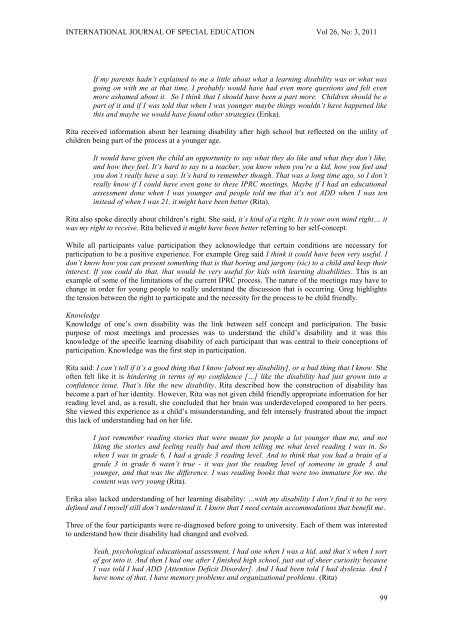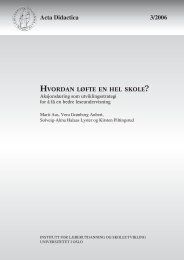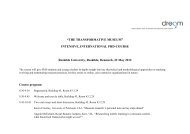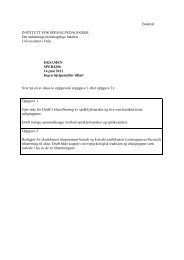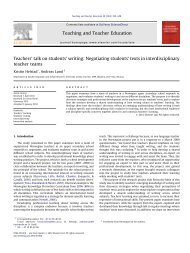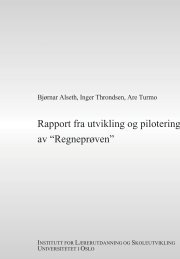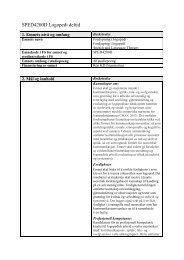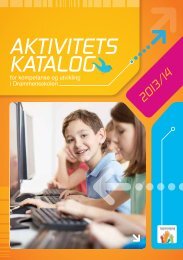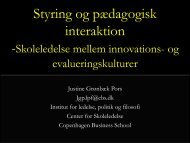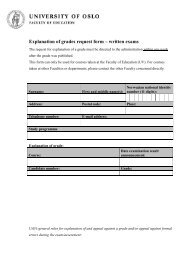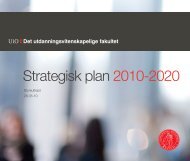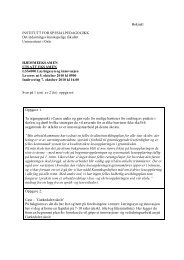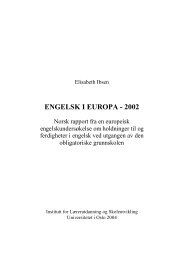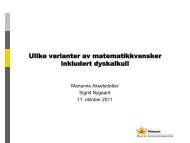International Journal Special Education
International Journal Special Education
International Journal Special Education
You also want an ePaper? Increase the reach of your titles
YUMPU automatically turns print PDFs into web optimized ePapers that Google loves.
INTERNATIONAL JOURNAL OF SPECIAL EDUCATION Vol 26, No: 3, 2011If my parents hadn’t explained to me a little about what a learning disability was or what wasgoing on with me at that time, I probably would have had even more questions and felt evenmore ashamed about it. So I think that I should have been a part more. Children should be apart of it and if I was told that when I was younger maybe things wouldn’t have happened likethis and maybe we would have found other strategies (Erika).Rita received information about her learning disability after high school but reflected on the utility ofchildren being part of the process at a younger age.It would have given the child an opportunity to say what they do like and what they don’t like,and how they feel. It’s hard to say to a teacher, you know when you’re a kid, how you feel andyou don’t really have a say. It’s hard to remember though. That was a long time ago, so I don’treally know if I could have even gone to these IPRC meetings. Maybe if I had an educationalassessment done when I was younger and people told me that it’s not ADD when I was teninstead of when I was 21, it might have been better (Rita).Rita also spoke directly about children’s right. She said, it’s kind of a right. It is your own mind right.... itwas my right to receive. Rita believed it might have been better referring to her self-concept.While all participants value participation they acknowledge that certain conditions are necessary forparticipation to be a positive experience. For example Greg said I think it could have been very useful. Idon’t know how you can present something that is that boring and jargony (sic) to a child and keep theirinterest. If you could do that, that would be very useful for kids with learning disabilities. This is anexample of some of the limitations of the current IPRC process. The nature of the meetings may have tochange in order for young people to really understand the discussion that is occurring. Greg highlightsthe tension between the right to participate and the necessity for the process to be child friendly.KnowledgeKnowledge of one’s own disability was the link between self concept and participation. The basicpurpose of most meetings and processes was to understand the child’s disability and it was thisknowledge of the specific learning disability of each participant that was central to their conceptions ofparticipation. Knowledge was the first step in participation.Rita said: I can’t tell if it’s a good thing that I know [about my disability], or a bad thing that I know. Sheoften felt like it is hindering in terms of my confidence […] like the disability had just grown into aconfidence issue. That’s like the new disability. Rita described how the construction of disability hasbecome a part of her identity. However, Rita was not given child friendly appropriate information for herreading level and, as a result, she concluded that her brain was underdeveloped compared to her peers.She viewed this experience as a child’s misunderstanding, and felt intensely frustrated about the impactthis lack of understanding had on her life.I just remember reading stories that were meant for people a lot younger than me, and notliking the stories and feeling really bad and them telling me what level reading I was in. Sowhen I was in grade 6, I had a grade 3 reading level. And to think that you had a brain of agrade 3 in grade 6 wasn’t true - it was just the reading level of someone in grade 3 andyounger, and that was the difference. I was reading books that were too immature for me, thecontent was very young (Rita).Erika also lacked understanding of her learning disability: …with my disability I don’t find it to be verydefined and I myself still don’t understand it. I know that I need certain accommodations that benefit me.Three of the four participants were re-diagnosed before going to university. Each of them was interestedto understand how their disability had changed and evolved.Yeah, psychological educational assessment, I had one when I was a kid, and that’s when I sortof got into it. And then I had one after I finished high school, just out of sheer curiosity becauseI was told I had ADD [Attention Deficit Disorder]. And I had been told I had dyslexia. And Ihave none of that. I have memory problems and organizational problems. (Rita)99


